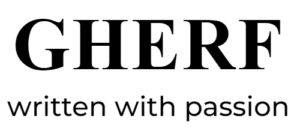COVID-19 misinformation is not just another story. It is a big problem in our society. In a recent revelation, a groundbreaking study conducted by public health researchers at the University of Massachusetts Amherst has unveiled a disturbing trend among US doctors. Shockingly, the study has found that 52 American physicians have actively shared misinformation related to COVID-19 on various social media and online platforms. This misinformation encompasses a wide range of false claims, including the assertion that “most who took COVID vaccines will be dead by 2025.”
A Comprehensive Investigation into the Disconcerting Role of Physicians in Disseminating COVID-19 Misinformation
The study, which sheds light on an issue that has far-reaching consequences for public health, marks the first of its kind in identifying the types of COVID-19 misinformation propagated by US physicians on social media and the platforms they utilize. The researchers, led by Sahana Sule and her colleagues, delve into the motives and implications of this concerning trend in their published paper.
Misinformation, a scourge that predates the COVID-19 pandemic, has taken on a new level of urgency in recent times. Its rampant spread during the pandemic has exacerbated the consequences of a global public health crisis that has already claimed the lives of nearly 7 million people worldwide.
As the authors of the study assert, roughly one-third of the over 1 million COVID-19-related deaths in the United States by January 2023 could have been averted if public health recommendations had been diligently followed. This grim reality underscores the profound impact of misinformation in the era of COVID-19.
The study’s findings reveal that these 52 doctors were licensed in 29 states, with a significant portion affiliated with groups that have propagated medical misinformation for decades. Twitter emerged as the favored platform for spreading such misinformation, with 37 doctors disseminating false claims to a collective audience of over 9 million followers. Astonishingly, 20 of these doctors posted COVID-19 misinformation across five or more social media platforms, while 40 utilized five or more online platforms, including news outlets.
The Dark Side of Expertise: Unveiling the Motivations Behind Medical Professionals Spreading Falsehoods During a Global Health Crisis
The misinformation proliferated online encompasses four key categories: medication, vaccines, mask/distancing, and other unsubstantiated or false claims. Notably, many physicians who shared misinformation did so across multiple categories. This complexity highlights the challenge of discerning fact from fiction in an increasingly noisy online landscape.
Some of the false claims were presented in a manner that could easily mislead. For instance, the assertion that most COVID-19 cases occurred in vaccinated individuals, while technically true, lacked context since a substantial majority of the population had received vaccinations. Furthermore, misinformation extended to unfounded claims regarding COVID-19 vaccines causing infertility, immune system damage, chronic illness in children, and even cancer.
Prominent medications like ivermectin and hydroxychloroquine, widely touted as COVID-19 treatments, were debunked by randomized clinical trials, with the FDA withholding approval for such usage. The study also reveals that increases in COVID-19 cases in areas with mask mandates were often misconstrued as evidence that these mandates did not curb infection rates. Additionally, some doctors baselessly argued that mask-wearing interfered with social development and constituted child abuse in school settings.
Beyond these alarming findings, the study brings to light various conspiracy theories, including those surrounding the “plandemic,” allegations of government officials withholding information, manipulating statistics, or suppressing dissenting views. Some even propagated the unsubstantiated theory that the virus originated in a Chinese laboratory or leaked from an NIH-funded study.
The absence of federal laws governing medical misinformation on social media has left consumers grappling with the daunting task of discerning accuracy amidst a sea of contradictory information. While individuals typically rely on experts for guidance, the troubling question arises: what happens when those very experts spread misinformation?
Scientific evidence, a cornerstone of medical practice, relies on a robust body of research, transparency, review, and reproducibility. While doctors, like anyone else, are prone to errors and influenced by personal beliefs, public health guidance emphasizes trust in the expertise of medical professionals, particularly after years of education in the sciences. The study raises the critical issue of why a small fraction of the over 1 million physicians in the United States choose to disseminate unfounded information.
Motivations behind this alarming trend warrant further exploration, although the study suggests that misinformation dissemination has become a lucrative industry for some. For example, America’s Frontline Doctors reportedly amassed at least US$15 million by prescribing hydroxychloroquine and ivermectin for COVID-19 through a $90 per consult telemedicine service.
It is essential to recognize that this study was conducted after social media platforms initiated efforts to combat misinformation. Therefore, it may not fully capture the extent of medical misinformation present before these measures were enacted. Additionally, the study may not have accounted for false information disseminated on less prominent platforms or in clinical care settings.
This study underscores the profound impact of misinformation in the context of a global health crisis. It highlights the urgent need for strategies to combat the spread of falsehoods and the critical importance of trust between healthcare professionals, patients, and society for the preservation of public health. The publication of this study in JAMA Network Open serves as a stark reminder of the challenges that misinformation poses and the responsibility of all stakeholders in addressing this complex issue.

